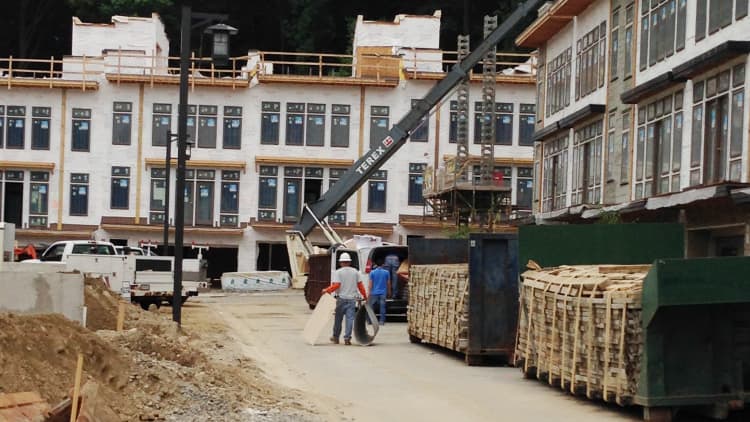
The nation's homebuilders are taking a step back from their tax cut euphoria and starting the year on a slightly less sanguine note.
Builder sentiment fell 2 points to 72 in January, according to a monthly survey from the National Association of Home Builders called the housing market index. The downward move comes after the measurement hit an 18-year high in December, following the passage of the Republican tax cut plan.
Any reading above 50 is considered positive sentiment. The index stood at 67 in January 2017.
"Builders are confident that changes to the tax code will promote the small business sector and boost broader economic growth," said NAHB Chairman Randy Noel, a homebuilder from LaPlace, Louisiana. "Our members are excited about the year ahead, even as they continue to face building material price increases and shortages of labor and lots."
Builders rank those costs at the top of their list of problems faced in 2017, and the vast majority of them expect both to get worse in 2018, according to another NAHB survey.
Of the sentiment index's three components, current sales conditions dropped 1 point to 79, sales expectations in the next six months fell 1 point to 78 and buyer traffic fell 4 points to 54.
"The HMI gauge of future sales expectations has remained in the 70s, a sign that housing demand should continue to grow in 2018," said NAHB Chief Economist Robert Dietz. "As the overall economy strengthens, owner-occupied household formation increases and the supply of existing home inventory tightens, we can expect the single-family housing market to make further gains this year."
Regionally, on a three-month moving average, sentiment in the West rose 2 points to 81, while it increased 1 point to 73 in the South. In the Midwest, sentiment rose 1 point to 70, and it jumped 5 points to 59 in the Northeast.


